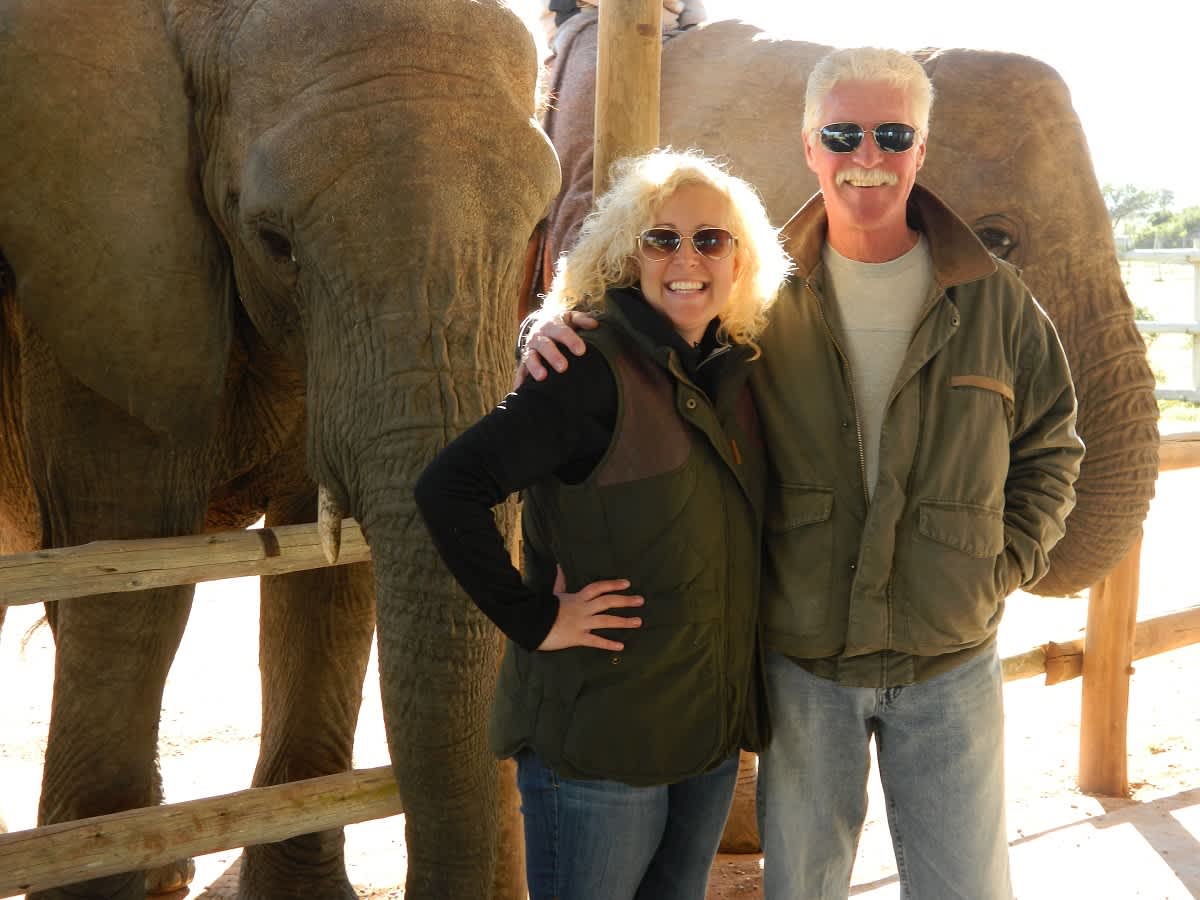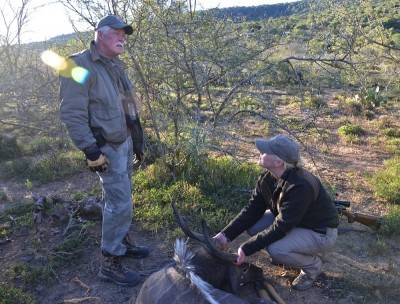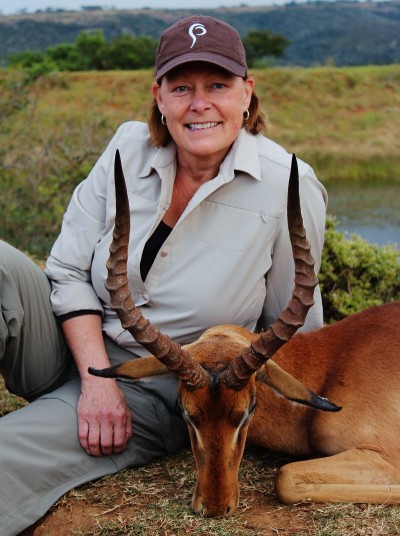Why Do You Hunt?
Britney Starr 08.10.14

Why do you hunt? It’s a question that I’m often asked by friends and family members who don’t partake in the activity. Sometimes, I’m tempted to answer with “Because I can.” But I don’t, because I feel that it’s more important to take the time to share the real reasons behind the hunt.
For me, hunting is much more than just a trophy photo to put on social media—it’s about conservation and preserving wildlife, making memories with family members and friends, and sharing my passion with future hunters, to name a few.
Respect for the outdoors
From day one, my dad has instilled in me a sense of deep respect for the wildlife that we hunt. He is a licensed professional hunter in South Africa and guides clients for the safari company that we own together—Starr & Bodill African Safaris. He gives an audible “thank you” to every animal that is shot, regardless of whether it is taken by his gun or by a client’s.
We all show gratitude in different ways, and I’m often overcome with emotion after having pulled the trigger—partly due to the adrenaline dump that happens after the shot, but mostly because I am thankful for making an ethical kill.

It’s infrequent that non-hunters are able to witness this overwhelming emotional response. My guess is they only see trophy photos posted on social media, which don’t tell story of the hunt as a whole. If they were able to witness it for themselves, they may understand more about why exactly we do what we do.
Conservation
Conservation is most effective when wildlife has a value to humans. Dollars spent on hunting translate to dollars used toward habitat management. This is especially the case in Africa, where I have seen firsthand the positive impact that hunting has on wildlife populations, habitat, and local economies.
According to a recent article by Outdoor Life, the 18,000-plus hunters who travel to Africa on a yearly basis generate roughly $200 million and fund the protection of more than 540,000 square miles of habitat.
Additionally, organizations like Safari Club International (SCI) are working to raise funds for conservation worldwide. According to the 2013 annual report, SCI’s revenue totaled $8,046,479, of which $5,358,769 was spent on conservation efforts, outdoor education, humanitarian services, and the International Wildlife Museum.
I’m proud to be a member of SCI, as well as the National Wild Turkey Federation and the National Rifle Association. They are all organizations that work to safeguard the future of hunting through conservation.
Fostering future hunters
There is nothing that I love more than sharing my passion for hunting with others, except when others are inspired by my passion to try their hand at hunting, too.

Five women joined me on my most recent safari. Cindy Grove came as an observer and photographer, accompanying her sister and accomplished outdoorswoman Andrea Fisher. During our two-hour drive to the lodge, we chatted about how excited we were for what the hunt might have in store for us during the following 10 days. Our excitement was contagious, and Cindy decided that she might want to hunt an animal during our safari. Her professional hunter Mike recommended that she shoot Andrea’s rifle during the sight-in time that day, just in case. Having shot guns before, she did a fantastic job of handling Andrea’s 7mm Remington Magnum, and Mike said she was ready for her first hunt, if she decided that’s what she wanted to do.
After a few days of witnessing Andrea’s time on the veld, and listening to the rest of the group recount their daily activities around the campfire, Cindy decided that she definitely wanted to hunt for an impala—and that she did! Under the close supervision of Mike and Andrea, Cindy connected with a gorgeous impala—her first animal ever!
It’s hard for me to sum up my passion for hunting in just a few short paragraphs. Hunting has shaped me as a person, and changed my life in many ways. I’m grateful for all of the memories and life lessons that I have experienced because of it. Outdoorsmen and women hold the key to the future of wildlife, and with conservation and fostering future hunters, I hope that it continues to flourish.

